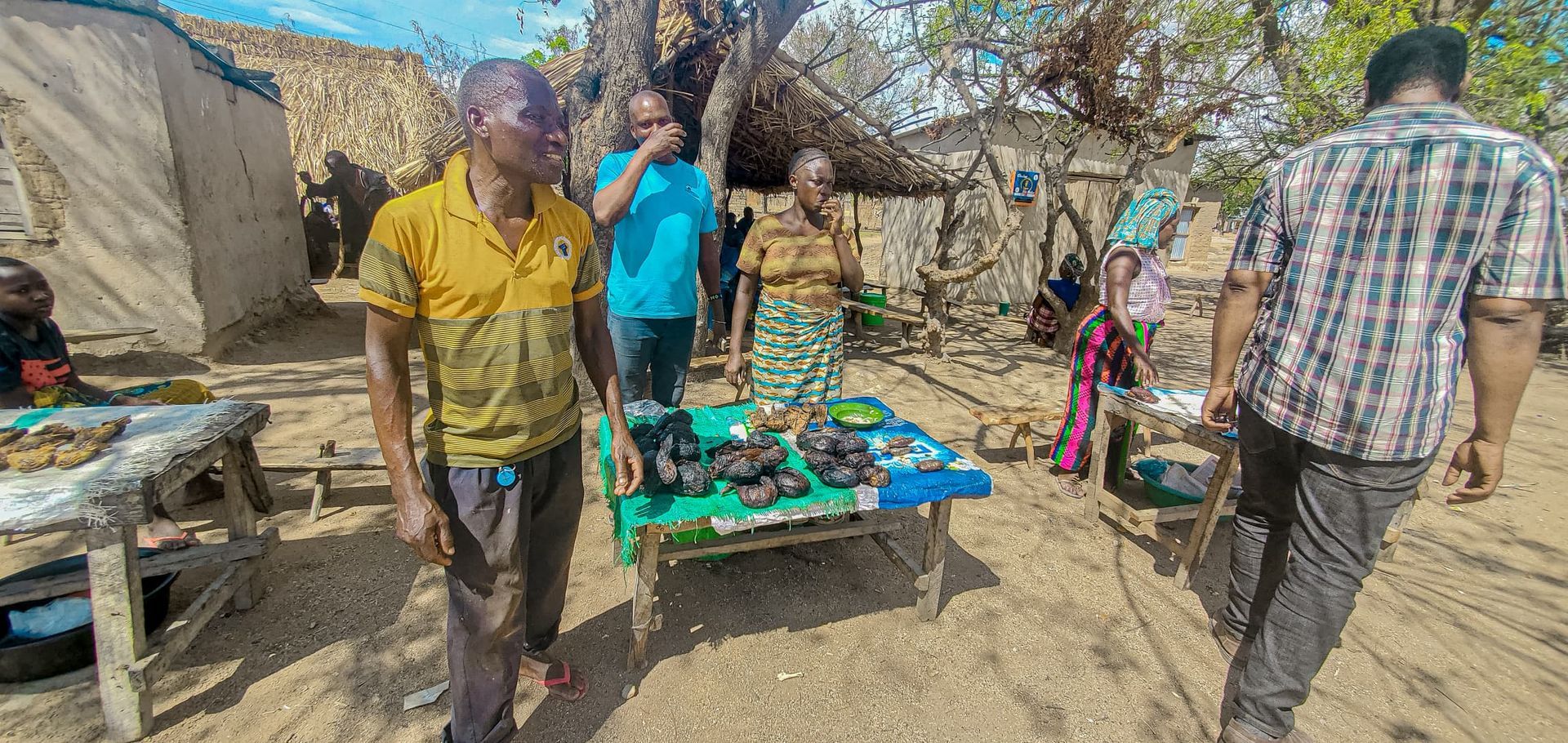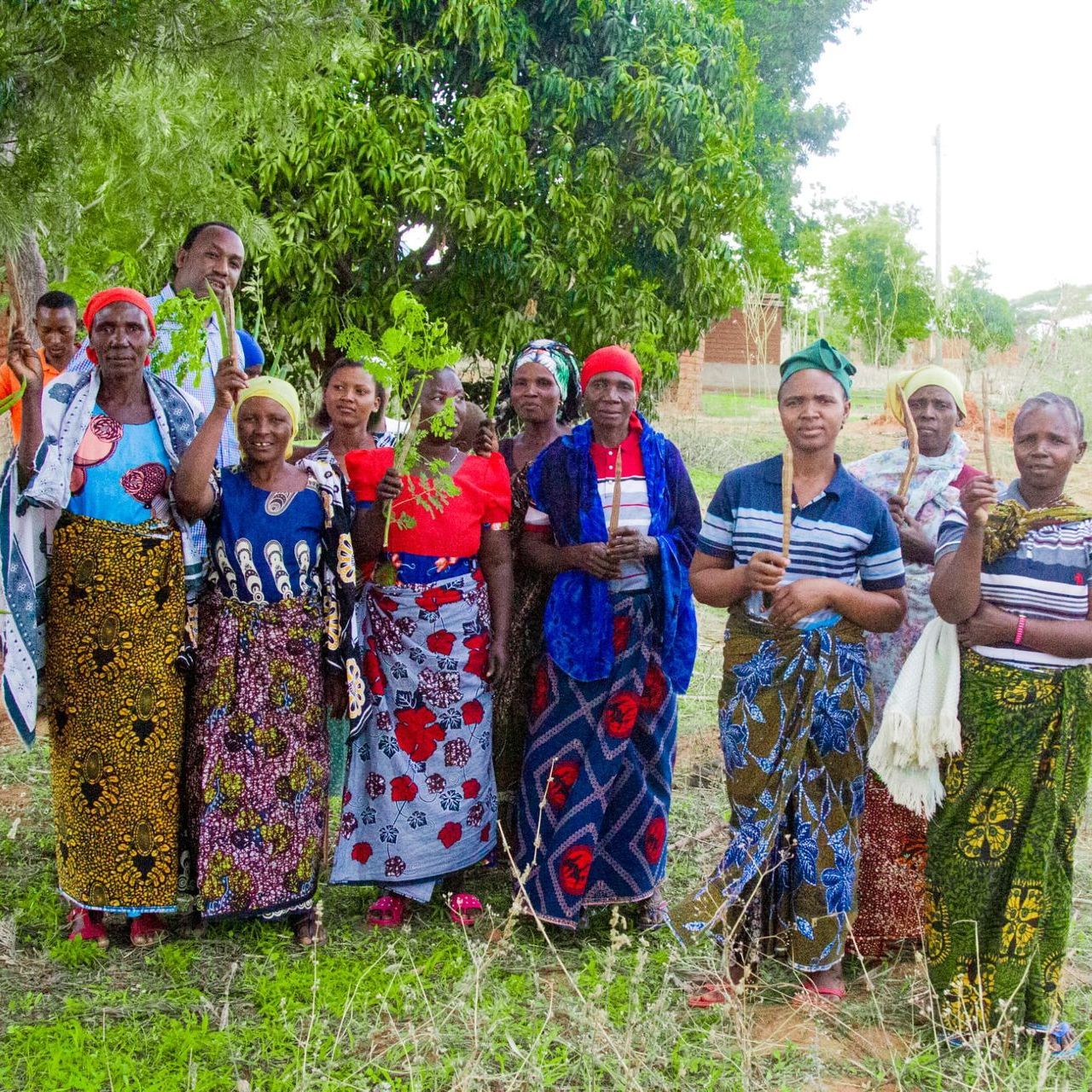Tanzania
Tanzania
Tanzania
KETAAKETI works in Tanzania with the local non-governmental organization
Ngao Ya Maisha Bora (Shield for Better Life) together
KETAAKETI works in Tanzania with the local non-governmental organization
Ngao Ya Maisha Bora (Shield for Better Life)
KETAAKETI works in Tanzania with the local non-governmental organization
Ngao Ya Maisha Bora
(Shield for Better Life)
Why Tanzania?
Tanzania is located in East Africa and borders Mozambique, Malawi, Zambia and the Democratic Republic of Congo as well as Burundi, Rwanda, Uganda and Kenya. It is located on the Indian Ocean and includes the mainland and the Zanzibar archipelago. Tanzania is approximately two and a half times the size of Germany and has a population of around 62 million. The country has been independent of the United Kingdom since 1961, which is why English is still the official language, but Swahili is used almost exclusively.
Why Tanzania?
Tanzania is located in East Africa and borders Mozambique, Malawi, Zambia and the Democratic Republic of Congo as well as Burundi, Rwanda, Uganda and Kenya. It is located on the Indian Ocean and includes the mainland and the Zanzibar archipelago. Tanzania is approximately two and a half times the size of Germany and has a population of around 62 million. The country has been independent of the United Kingdom since 1961, which is why English is still the official language, but Swahili is used almost exclusively.
Why Tanzania?
Tanzania is located in East Africa and borders Mozambique, Malawi, Zambia and the Democratic Republic of Congo as well as Burundi, Rwanda, Uganda and Kenya. It is located on the Indian Ocean and includes the mainland and the Zanzibar archipelago. Tanzania is approximately two and a half times the size of Germany and has a population of around 62 million. The country has been independent of the United Kingdom since 1961, which is why English is still the official language, but Swahili is used almost exclusively.

The economy is increasingly stabilizing and is experiencing annual growth. One important sector is tourism in the famous national parks in the north and on Zanzibar. The country also has gold and nickel ore deposits as well as natural gas deposits in the Indian Ocean. These raw materials, like tobacco and cashew nuts, are mainly used for export, while other cash crops such as coffee and cotton are losing importance in favor of domestic food supplies.
However, unemployment in the country is very high and many people are moving to the big city of Dar es Salaam in the hope of better opportunities. The majority of the population still lives in rural areas and practices subsistence farming to ensure their own survival. However, the country is increasingly struggling with the effects of climate change, particularly in the semi-desert in the center of the country, which is making living conditions significantly more difficult.

The economy is increasingly stabilizing and is experiencing annual growth. One important sector is tourism in the famous national parks in the north and on Zanzibar. The country also has gold and nickel ore deposits as well as natural gas deposits in the Indian Ocean. These raw materials, like tobacco and cashew nuts, are mainly used for export, while other cash crops such as coffee and cotton are losing importance in favor of domestic food supplies.
However, unemployment in the country is very high and many people are moving to the big city of Dar es Salaam in the hope of better opportunities. The majority of the population still lives in rural areas and practices subsistence farming to ensure their own survival. However, the country is increasingly struggling with the effects of climate change, particularly in the semi-desert in the center of the country, which is making living conditions significantly more difficult.


The economy is increasingly stabilizing and is experiencing annual growth. One important sector is tourism in the famous national parks in the north and on Zanzibar. The country also has gold and nickel ore deposits as well as natural gas deposits in the Indian Ocean. These raw materials, like tobacco and cashew nuts, are mainly used for export, while other cash crops such as coffee and cotton are losing importance in favor of domestic food supplies.
However, unemployment in the country is very high and many people are moving to the big city of Dar es Salaam in the hope of better opportunities. The majority of the population still lives in rural areas and practices subsistence farming to ensure their own survival. However, the country is increasingly struggling with the effects of climate change, particularly in the semi-desert in the center of the country, which is making living conditions significantly more difficult.


SHIELD OF THE BEST LIFE
SHIELD OF THE BEST LIFE
SHIELD OF THE BEST LIFE
Since October 2023, we have been working with the local non-governmental organization Ngao Ya Maisha Bora (Shield for Better Life) in Tanzania, which is currently active in the Dodoma region in the center of the country.
The vision of our partner organization is an ecological and sustainable society without hunger and poverty. To achieve this, it works with particularly endangered and vulnerable communities in the Dodoma region, which is very dry compared to other parts of the country and does not benefit from tourism. The KETAAKETI model is intended to create self-initiated projects and independent perspectives in the villages and to use potential to positively influence the future, especially of children. To this end, the first interest-free seed funding was paid out to 30 women at the end of last year.
One of the NGO's particular concerns is to transform the semi-desert in central Tanzania into a fertile green area that can provide people with a livelihood. To this end, Shield for Better Life has commissioned the farmers in the community to plant fruit trees and moringa trees and thus reforest and renaturalize the area. A tree nursery is also to be built so that seedlings can be sold and the yields, such as fruit, can be marketed. This ecological and economic approach is intended to combat poverty, hunger and malnutrition in the long term.

"Our vision is an ecological and sustainable society without hunger and poverty."
Barthelemy Minani, NGO director (on the right with a family that received interest-free seed funding)
Since October 2023, we have been working with the local non-governmental organization Ngao Ya Maisha Bora (Shield for Better Life) in Tanzania, which is currently active in the Dodoma region in the center of the country.
The vision of our partner organization is an ecological and sustainable society without hunger and poverty. To achieve this, it works with particularly endangered and vulnerable communities in the Dodoma region, which is very dry compared to other parts of the country and does not benefit from tourism. The KETAAKETI model is intended to create self-initiated projects and independent perspectives in the villages and to use potential to positively influence the future, especially of children. To this end, the first interest-free seed funding was paid out to 30 women at the end of last year.
One of the NGO's particular concerns is to transform the semi-desert in central Tanzania into a fertile green area that can provide people with a livelihood. To this end, Shield for Better Life has commissioned the farmers in the community to plant fruit trees and moringa trees and thus reforest and renaturalize the area. A tree nursery is also to be built so that seedlings can be sold and the yields, such as fruit, can be marketed. This ecological and economic approach is intended to combat poverty, hunger and malnutrition in the long term.

"Our vision is an ecological and sustainable society without hunger and poverty."
Barthelemy Minani, NGO Director
(on the right in the picture with a family that received interest-free seed funding)
Since October 2023, we have been working with the local non-governmental organization Ngao Ya Maisha Bora (Shield for Better Life) in Tanzania, which is currently active in the Dodoma region in the center of the country.
The vision of our partner organization is an ecological and sustainable society without hunger and poverty. To achieve this, it works with particularly endangered and vulnerable communities in the Dodoma region, which is very dry compared to other parts of the country and does not benefit from tourism. The KETAAKETI model is intended to create self-initiated projects and independent perspectives in the villages and to use potential to positively influence the future, especially of children. To this end, the first interest-free seed funding was paid out to 30 women at the end of last year.
One of the NGO's particular concerns is to transform the semi-desert in central Tanzania into a fertile green area that can provide people with a livelihood. To this end, Shield for Better Life has commissioned the farmers in the community to plant fruit trees and moringa trees and thus reforest and renaturalize the area. A tree nursery is also to be built so that seedlings can be sold and the yields, such as fruit, can be marketed. This ecological and economic approach is intended to combat poverty, hunger and malnutrition in the long term.

"Our vision is an ecological and sustainable society without hunger and poverty."
Barthelemy Minani, NGO director (on the right with a family that received interest-free seed funding)
Seed funding in Tanzania
Seed funding in Tanzania
Microfinance in Tanzania

Women receive moringa seedlings

Handover of interest-free seed funding

Women receive moringa seedlings

Handover of interest-free seed funding

Women receive moringa seedlings

Handover of interest-free seed funding


